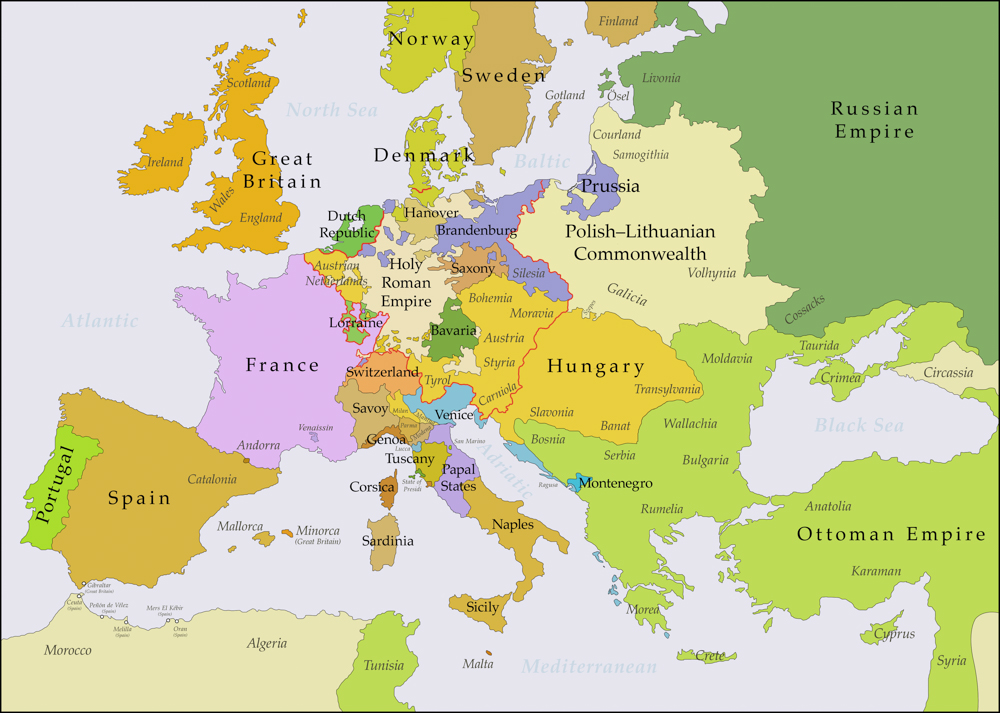Wars that Impacted Germany 1740-1763
Our Dörr Ancestors of Rüdigheim, Amöneburg, Germany were most likely impacted between 1740 and 1763 by the following wars.
War of the Austrian Succession (1740-1748)
The 1748 Treaty of Aix-la-Chapelle was negotiated in 1748, during the lifetimes of this family. The Treaty of Aix-la-Chapell (October 18, 1748) treaty negotiated largely by Britain and France, with the other powers following their lead, ending the War of the Austrian Succession (1740-48). The treaty was marked by the mutual restitution of conquests, including the fortress of Louisbourg on Cape Breton Island, Nova Scotia, to France, Madras in India, to England; and the barrier towns to the Dutch. The right of the Habsburg heiress Maria Theresa to the Austrian lands was guaranteed, but the Habsburgs were seriously weakened by the guarantee to Prussia, not a party to the treaty, of its conquest of Silesia. Both Britain and France were trying to win the friendship of Prussia, now clearly a significant power, the next war. Maria Theresa gave up to Spain the duchie of parma, Piacenza, and Guastalla in Italy. The treaty confirmed the right of succession of the house of Hanover both in Great Britain and in Hanover. In the commercial struggle between England and France in the West Indies. Africa, and India, nothing was settled; the treaty was thus no basis for lasting peace.

Seven Years' War (1756-1763)
The Seven Years’ War (1756-1763) was a global conflict fought between 1756 and 1763. It involved every European great power of the time and spanned five continents, affecting Europe, The Americas, West Africa, South Asia, and the Philippines.
The conflict split Europe into two coalitions: one was led by the Kingdom of Great Britain and included the Kingdom of Prussia, while the other was led by the Kingdom of France. The Seven Years’ War was perhaps the first true world war, having influenced many major events later around the globe. The war restructured not only the European political order, but also affected events all around the world, paving the way for the beginning of later British world supremacy in the 19th century, the rise of Prussia in Germany (eventually replacing Austria as the leading German State), the beginning tensions in British North America, as well as a clear sign of France’s eventual turmoil. It was characterized in Europe by sieges and the arson of towns as well as open battles with heavy losses.
Attribute:
- Europe in the years after the Treaty of Aix-la-Chapelle in 1748. By P. S. Burton – This file was derived from: Europe 1748-1766.png, CC BY 3.0, https://commons.wikimedia.org/w/index.php?curid=25910813
